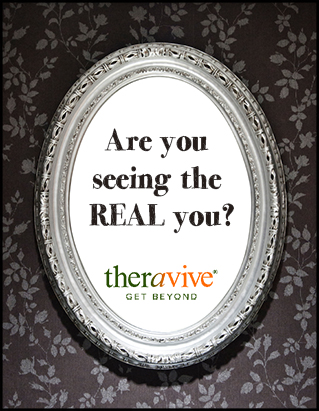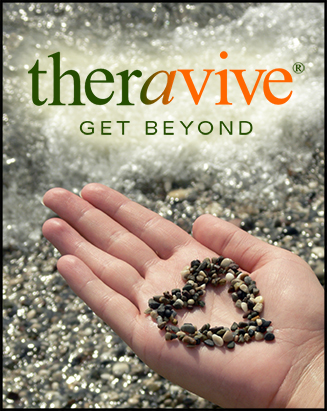 What is Body Image?
What is Body Image?
Body image is how you view, feel about and experience your body. It refers to whether you like (positive body image) or dislike (negative body image) your looks, height, weight, shape and abilities. Body image also encompasses how you feel inside your skin, the way you move and manage your body.
Who has Body Image Problems?
Most people conjure up an image of a thin, young female looking in the mirror at a much larger image of herself when they think about body image issues. In fact, overweight women often experience reverse body image, seeing themselves as smaller than they actually are in reality. As you can see, the body image problem goes both ways.
According to research published by the National Association of Anorexia Nervosa and Associated Disorders (ANAD), 91% of college age women report body image issues. The National Eating Disorders Association (NEDA) also reports that over the past three decades, the percentage of men who are unhappy with their bodies has risen from 15% to 43%.
95% of people with eating disorders are between the ages of 12 and 26. What is harder to find are statistics about how many women and men in general have body image problems (as opposed to those under age 25). The pressure to look good and taboo against aging continues to make it difficult for people to accept their bodies into middle age and beyond.
One would hope that the numbers decrease, as many settle into acceptance and learn that we are more than our bodies. However, it would be incorrect to assume that the problems end after college or once adults are married. Pregnancy and the lasting effects it poses on the body often create new body image problems for women, some who may not have experienced these particular issues in the past. For those who did, the problems often intensify.
Why is Body Image so Important?
Body image is very important to our overall sense of well being. People with a negative body image are at risk for a host of problems, including depression, anxiety, poor self-esteem, suicidal thoughts, self-injury, unhealthy sexuality and eating disorders.
When and Why Do People Struggle with Body Image?
Girls tend to begin worrying about their looks and weight at puberty or before. The influences for these problems are varied. However, the most common contributors to negative body image are cultural/societal norms, media and family.
 What to Do About Negative Body Image
What to Do About Negative Body Image
Body image issues can be prevented to some extent. While we can’t easily or quickly change the cultural norms in our society, we can control how much we engage in specific behaviors that contribute to negative body image. None of us get to choose our families, so unlearning damaging messages from the early years becomes important as we get older. Here are some tips for preventing and repairing body image issues.
· Stop reading women’s magazines and viewing media that objectify women’s bodies. Even if you are not actively comparing yourself to models or actresses who spend their lives looking unrealistically flawless, they set the standard to which most people aspire. If you are a parent, monitor your children’s use of media.
· Deal with your own body image problems before having children. People realize by adulthood if their perceptions of their bodies are impaired. Take responsibility for repairing these problems to avoid passing them along to your children. Even if you don’t say things to them directly about their appearance, children learn from how adults behave and perceive themselves. If you obsess about your weight or size, they will learn to do that. Judging other women about how they look will also teach your children to measure their worth on the scales or in the mirror.
· Talk to your children about realistic and unrealistic standards for physical appearance. Explain that women on television and in print are paid to look a certain way and many harm themselves to do so. Show them realistic bodies of regular people who do not spend hours daily in the pursuit of beauty.
· Set different norms and standards for yourself and your family. Celebrate the whole person, rather than just physical appearance. Teach children that their health, studies, hobbies, ability to think and reason are more important than their appearance.
· Help children understand the difference between health and appearance. Teach them to monitor their health in ways other than just their weight or size. Do this by modeling healthy behaviors and celebrating successful and healthy habits, ie. spending at least 30 minutes each day engaged in a physical activity, like walking or playing basketball.
· Accept aging as a natural part of life. Make peace with your changing body and looks. Rather than bemoaning lines, wrinkles and gray hair, recognize these as normal.
· Support those who advocate healthy body image, aging and natural beauty. Boycott companies and manufacturers that promote the unhealthy ‘heroin’ look in their models and actors.
· Most importantly, if you recognize problems with body image, get professional help as soon as possible to avoid some of the more serious problems that may follow.
_________________________________________________________________________________________________________________________________
1. National Association of Anorexia Nervosa and Associated Disorders. (2014). Eating Disorder Statistics. http://www.anad.org/get-information/about-eating-disorders/eating-disorders-statistics/
2. National Eating Disorders Association. (2014). Statistics on Males and Eating Disorders. http://www.nationaleatingdisorders.org/statistics-males-and-eating-disorders
3. Women’s Health. (2009). Body Image. http://womenshealth.gov/body-image/
About the Author
 LuAnn Pierce, LCSW
LuAnn Pierce, LCSWI am a clinical social worker, therapist and writer. Currently, I offer online therapy and coaching services to people in Colorado and Wyoming. As a provider for the CO Department of Vocational Rehabilitation and the National MS Society, my expertise in counseling people who have disabilities and chronic illness is considerable. I have written for About.com, DailyRx.com, Theravive.com, GoodTherapy.org, SelfHelpMagazine.com and contribute to several other online health and mental health sites.
Office Location:
19th & Dahlia
Denver, Colorado
80220
United States
Phone: 303-910-2425
Contact LuAnn Pierce, LCSW
Professional Website:
http://HireASocialWorker.com